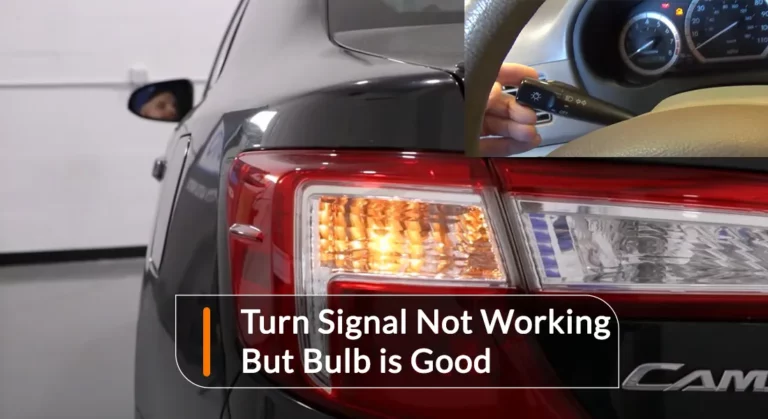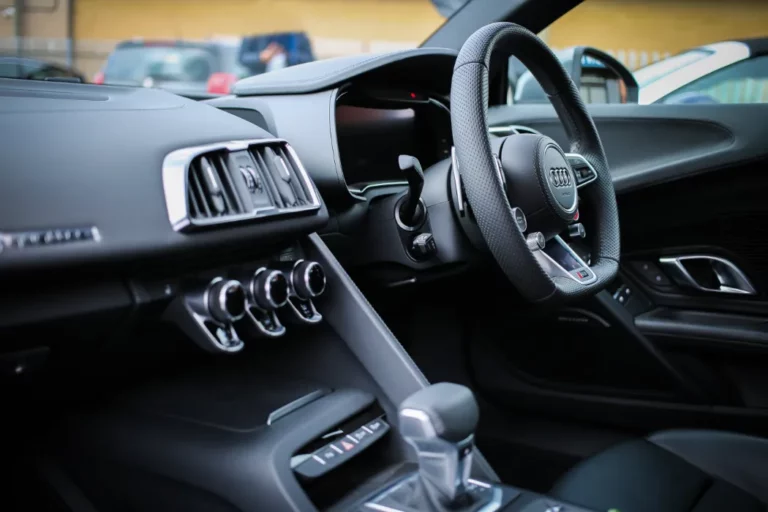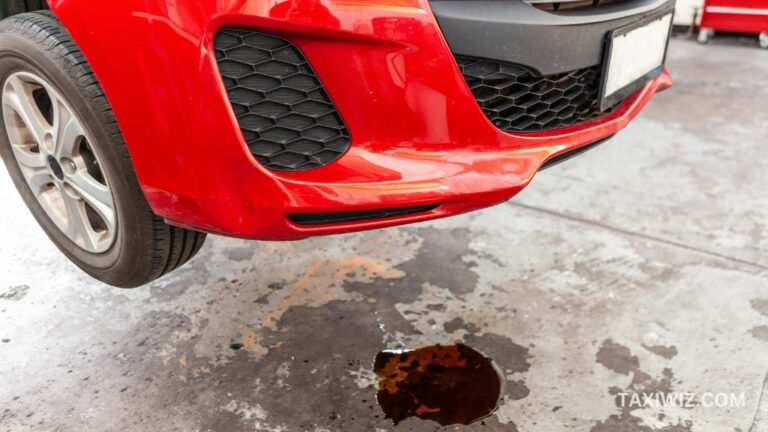Car Shuts Off When Brakes Are Pressed – Reason & What To Do!
When a car shuts off when brakes are pressed, it hints that the braking system or the engine is at fault. It can be an extremely irritating experience and may even lead to serious damage to your vehicle.
There can be quite a few reasons behind this situation, and identifying them is the first step to solving the problem. Usually, this problem is caused by:
- Faulty or Brake Booster Malfunction
- A Problem With The Idle Air Control Valve
- Faulty Electrical Connections
- Engine Mechanical Problems
- Low Fuel Pressure
- Brake Fluid Leak
6 Common Reasons Why Car Shuts Off When Brakes Are Pressed
Here are some possible reasons and related solutions to address those issues.
#1- Faulty or Brake Booster Malfunction
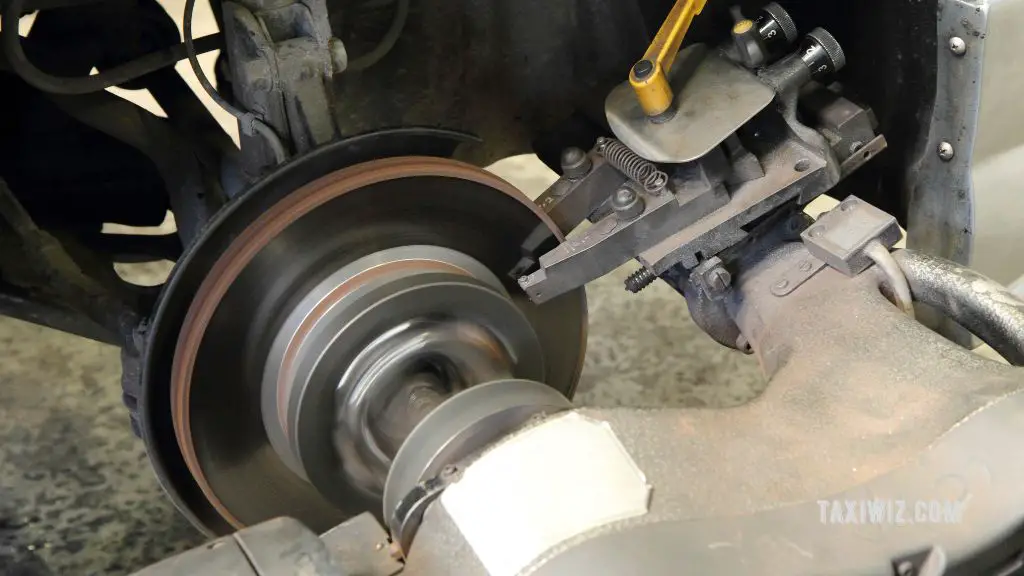
The brake booster of a vehicle is responsible for amplifying the brake force once we hit the brake pedal. It utilizes a vacuum created by the engine to amplify the brakes.
If this component stops working, then it can lead to a disruption in engine operation or cause a vacuum leak which results in the car shutting off when you hit the brakes.
To identify this, first, check the brake resistance. Pay close attention to the amount of resistance you feel when you hit the brakes. If the brake booster functions correctly, you will only feel slight resistance.
But if there is a malfunction or damage in the parts, the resistance will increase. And drivers will have a hard time just registering the brakes, which can result in your vehicle shutting down.
Brake boosters operate with the help of vacuum pressure. It is usually provided through the engine’s intake manifold. If it starts to leak, then the brakes won’t function, and your vehicle may shut down.
Look out for hissings sounds and a decline in engine performance in this case. The components related to vacuum pressure should also be checked. A vacuum leak can occur where there is a crack, loose connection, or damage to the booster.
If your engine performance is slowly declining, then a bad engine may be why your brake boosters aren’t functioning properly and making your car shut down.
In order to conclude this factor, you need to pay attention to any unusual behavior from your engine like stalling, drop in RPM, or rough idling.
All of these can be a hint that the engine power is slowly declining and the brake booster is being affected by it.
How to Fix
- Bleeding the brake system can remove any accumulated air bubbles in the brake lines, which can lead you to obtain proper brake booster functionality.
- If there are leaks or damage on some parts, then you can patch them up with the help of a mechanic or replace them completely.
- Lastly, replace the brake boosters. Don’t try to do this all your own, as a certain level of knowledge is required for this task. We recommend you seek the help of professionals in this matter.
- Once you have installed new brake boosters, you must thoroughly test the brake paddle resistance, airflow, and any anomalies.
#2- A Problem With The Idle Air Control Valve
IACV or Idle Air Control Valve generates the engine’s idle speed. This ensures the engine remains stable even when we add extra weight. This is handy when brakes are pressed, and the air intake is adjusted accordingly.
But if it gets damaged, it will fail to respond properly, leading to the engine stalling and ultimately shutting down.
You can easily spot the malfunction as a faulty ICAV will generate high or erratic idle speed where the engine will rev up & down without the driver’s input.
These are often referred to as engine surges which can also lead the engine to stall or go through a rough idle as well.
The engine light may also start to illuminate in this case. Run an ODB – II scanner to find the proper error code and act accordingly.
How to Fix
- Sometimes, the main reason why IACV is malfunctioning is because of dust and dirt. In those cases, cleaning the clogged-up dirt will fix this issue immediately, and your car won’t shut down when you hit the brakes.
- Restarting the ECU can often result in restoring the IACV if no components were damaged or at fault and it was just a technical issue.
- Finally, if you witness the Idle air control valve malfunctioning even after an ECU reset, then you won’t have any other option but to replace the IACV component.
#3- Faulty Electrical Connections
Modern vehicles heavily depend on electrical connections; almost every part of a car has electrical circuits running through them.
So, if there is any sort of faulty electrical connections like loose or corded or damaged connection which are directly related to the engine or braking system, then they can be the reason why your car stops when you hit the brakes.
This is due to the fact that any sort of power or signal disruption on the engine or brakes can lead to a momentary engine shutdown. And if the engine is turned off when you hit the brakes, then your car will stop functioning instantly.
The simplest way to determine if your car has any electrical connection issues is to inspect the engine compartments visually. Look for any signs of loose, corroded, or damaged connection. Make sure to check the wires, terminals, fuse boxes, and connectors.
Afterward, you can use a multimeter to help you check the continuity of connections so that you can easily conclude whether or not there are electrical faults in your car.
How to Fix
- If there is a loose connection, then make sure to tighten it and seal it as well correctly. Remember, always turn off the battery while working on electrical connections to avoid any electrical incidents.
- Damaged and corroded wires should be replaced immediately. Corrosion can be removed with the help of electric contact cleaner, but that depends on the level of corrosion the wires have faced. That is why it is better to get new ones instead.
- Look for the source of the electrical disrupts; sometimes, the battery puts out too many charges, which can fry the wires. If that is the case, you will also have to replace the battery.
#4-Engine Mechanical Problems
When the engine comes to a stop, the car will turn off immediately. It is the brain of a vehicle, and many malfunctions can occur, which can lead to its malfunction.
It can start from a simple sensor to worn-out belts or faulty crankshaft positions. As you are facing trouble when you hit the brakes, engine mechanical problems connected to brakes are the ones you should look into.
First, do a visual inspection and then proceed to check out each part individually. If you aren’t certain of what engine problems you are facing, contacting a mechanic can help you out and save a lot of time and effort.
How to Fix
- If the piston rings and cylinders get damaged, you will need to do a complete engine overhaul where you will have to disassemble the engine, replace the cylinders and pistons, and reassemble it.
- If the damage isn’t severe, you can repair bent parts
#5- Low Fuel Pressure
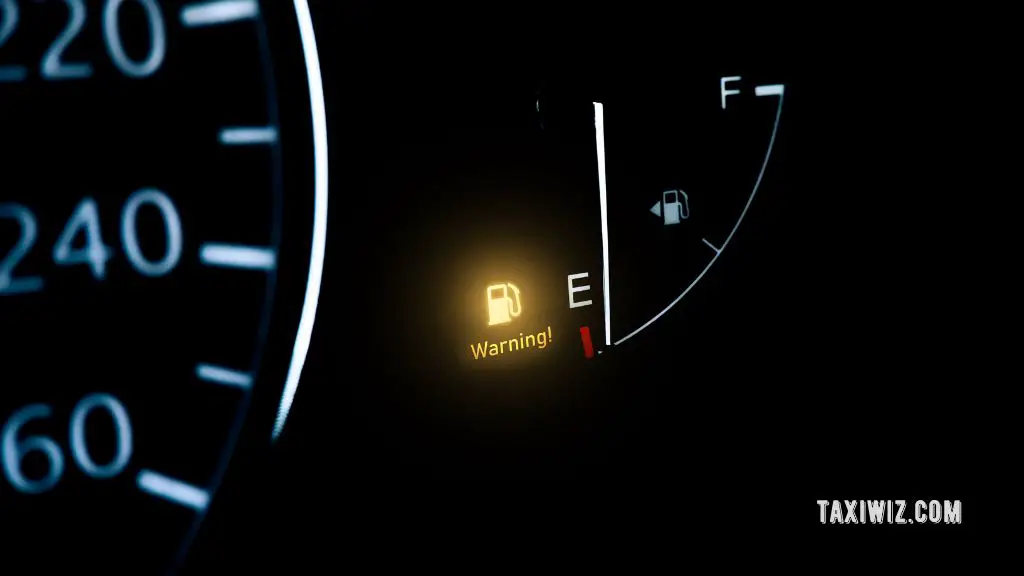
Your car can shut down if there isn’t a proper fuel-to-air ratio. Low fuel pressure slowly decreases the engine’s power, so misfires and engine shutdowns are common with this issue, especially when you hit the brake.
First, check the fuel pump and see if there is any sort of damage to it, like leakage. If the tank isn’t receiving enough fuel, it may be the cause of low pressure.
A clogged fuel filter can also be the reason for this issue. Make sure to also look into the fuel pressure regulators and lines.
How to Fix
- Begin by cleaning the fuel filters; if any parts aren’t damaged, then not passing optimally is the main cause, and you can easily clean it to fix the issue.
- Fix fuel leakage if there is any leak in the connectors or the pump.
- If any fuel system components are damaged, you will have no other option but to replace them. Some parts can be quite difficult to replace on your own; in that case, you should refer to a mechanic.
#6- Brake Fluid Leak
Break fluid transfers force from the brake pedal to the components of the system. But when air enters the fluid storage through leaks, then your car will die when the brakes are pressed.
To find out if you are facing a brake fluid leak, first look into the brake master cylinder, brake lines, wheel cylinders, and calipers to see if there is any fluid leaking.
Next, check the brake fluid level; if it is lower, then you can expect to see a decline in your car’s performance.
How to Fix
- If there is a leak or damage in the parts, then you will have no other option but to replace the parts.
- Once you have taken care of the leakage, you will have to fill the car with new brake fluid. Pick the correct brake fluid for your vehicle; otherwise, your problem won’t be solved!
Frequently asked questions (FAQs)
1. What does a spongy brake pedal mean?
This means brake fluid leakage on your vehicle might turn off if you press the brakes while driving.
2. Can I drive with a brake fluid leak?
Yes, but you won’t be able to drive much as your car will come to a stop and it is also not recommended to do so.
3. Should I repair the brake fluid myself?
If you are confident in your skills then sure, but unless you’re an expert it’s better to opt for professional help.
Final Thoughts
As you can see from this guide, there can be multiple reasons why a car shuts off when brakes are pressed. But if you can identify the cause, then you should be able to take care of the problem easily.

